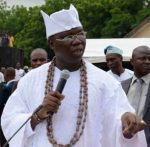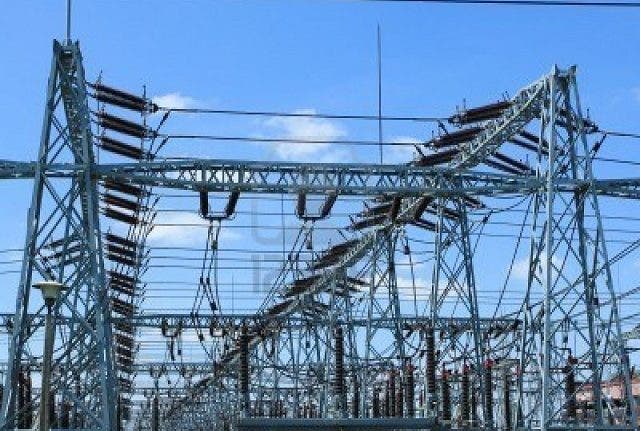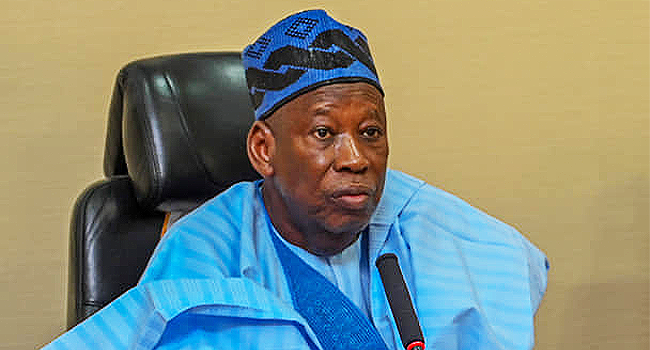FG Enhances Fertilizer Initiative And Agricultural Productivity


Food security remains a global need which underscores the need for enhanced agricultural productivity. Unfortunately, low agricultural productivity as a result of lack of improved seeds and other key inputs continue to hinder agricultural development. Ruth Tene Natsa writes on the Presidential Fertiliser Initiative (PFI) and its boost to the nation’s agriculture.
The Nigeria agricultural space recorded numerous challenges in 2015/2016, including the scarcity of inputs and hike in fertilizer prices. This hike was blamed on the diversion of inputs, particularly Urea, by insurgents.
This abuse led to a scarcity of the product and a subsequent hike in the prices of fertilizers which began to sell for as high as between N8.000 and N10.000 a bag. The spiraling effect was not just the hike in the fertilizer prices, but a hike in the prices of agricultural commodities in the markets, thereby causing untold hardship not just to the farmers but to consumers as a whole.
To address this challenge, the President Buhari-led government introduced the Presidential Fertiliser Initiative (PFI) as a means to addressing some of these challenges. Speaking on the initiative, the president, Fertiliser Producers and Suppliers Association of Nigeria (FEPSAN), Thomas Etuh, said, “The Presidential Fertiliser Initiative has eliminated subsidy on fertilizer by saving at least N60 billion in budgetary provisions in fertilizer supply for 2017. It would also boost the foreign exchange savings of $200 million by maximizing local content.”
Etuh, who said that the PFI was born following the signing of a bilateral agreement by FEPSAN and OCP Morocco following the visit of the King of Morroco to Nigeria in December 2016, noted that the agreement led to the setting up of the presidential committee for the initiative chaired by the governor of Jigawa State, Alhaji Muhammed Abubakar, with members drawn from the FEPSAN, ministries of agriculture, Finance, CBN, Office of the NSA, and Nigerian Sovereign Investment respectively.
Speaking when he led a delegation of the association’s monitoring team to the Fertilisers and Chemicals Limited Company in Kaduna, he said that the Initiative is a child born out of expediency.
“This idea came out of the need to solve the problem of perennial unavailability and in-affordability of fertilizers and more recently the sharp increase in the price of NPK fertilizer which reached an all-time high of between N9,000 and N10,000 in 2016,” Abubakar said.
Assuring that the initiative would crash the price of fertilizer from its current price to N5,500 only, he said, “The initiative would further enhance food supply through the expected increase in food production.”
On the immediate benefits of the program, Etuh said, “The initiative will avail Nigerian farmers 1 million metric tons of NPK fertilizer for the 2017 wet season farming and 500,000 metric tonnes for the 2017 dry season farming. Stating that the FEPSAN, working with the NSIA, was mandated to drive the lead to achieve full and maximum execution of the initiative, he assured that they had commenced activities, including receiving raw materials from their foreign suppliers and discharging of raw materials at the ports and trucking to the various blending plants.
He said, “Production has started in not less than six of our blending plants while others are under maintenance and should be joining before the end of April.”
He further asserted that finished products have started being moved to some states and agro-dealers, stating that “we have supplied more than 23,000mt already to Jigawa, Kebbi, and some dealers respectively.
The FEPSAN president said that through long-term contracts, the FEPSAN was able to secure favorable pricing for the imported raw materials, specifically DAP from Morroco and MOP from Europe and Russia while Limestone Granules (LSG) was negotiated from the West African Fertiliser Company Limited, Okpella, Edo. He added that the presidential committee on fertiliser with NSIA successfully negotiated for the required quantity of the supply of Urea, one of the local raw materials, from Indorama and Notore in Port Harcourt.
Speaking further, the managing director of Fertilisers and Chemicals Limited, Om Prakash Pandya, said that the cost of production is neck to neck with the system but because quantity will be more and the states will be paying timely, the paying would be neck to neck.”
He assured that on sustainability, “If funding to the manufacturers is sustained we would not have any problem.”
Also speaking, the governor of Jigawa State and chairman of PFI, Alhaji Muhammed Badaru Abubakar, had said that the process to the commencement of production was faced with challenges, including the allegation of N46 billion fertiliser scam. The chairman said that he was optimistic that the initiative will succeed despite the challenges that had dogged the process, stating that the allegations were sponsored by the same group that had profited from the importation of fertiliser and were not happy with the Initiative.
“We thank God today that production has started, Jigawa has picked up 4,000 metric tonnes of fertilisers already, and distributed to the farmers and just yesterday the rice producers through the chairman, House Committee on Fertiliser, said to me that the fertiliser is excellent. So whoever says that the quality is not good maybe did not use our fertiliser,” he said, adding that “what we have done is that we are the first to pick the fertilisers because of the dry season rice farming and it was applied at the nurseries and the result was superb. So nobody should deceive Nigerians that there is problem with our own blending. In any case, for any batch we do lab analysis and check quality. Sometimes, I am shy when I have to ask for lab analysis from trusted friends, but I still have to do my job.”
The governor thanked the FEPSAN president for his commitment to the project, saying, “The issue of money or profit was never on the table for the whole time, rather the issue of delivering the fertiliser at the right price for the farmers was because we have a clear understanding, and the president too, that for us to be competitive we have to start looking at our inputs for the farmers. We have to see how best we can reduce the cost of inputs for the farmers so that they can produce competitively.
“While you are improving yields you are improving production, you also have to reduce costs that will give better profit for the farmer and make him produce more and be competitive. Another dynamic team that had participated so well in the process is the National Sovereign Wealth Fund which had expressed professionalism in their dealings.”
He further revealed that seven blending companies had begun producing and soon the market would be flooded with the fertiliser, and thanked the president for the initiative, saying “It is very timely and will diversify the economy. As we look at agriculture, the major input is fertiliser and if this is handled then the little addition on machinery and improved seeds by research institutes would also follow.”
Meanwhile, the national chairman, Agro Dealers Association of Nigeria, Alhaji Kabiru Umar Fara, has said,“We the agro dealers are very happy that the initiative which is going to help farmers get inputs at affordable price is coming.”
He, however, said,“We want to participate; in fact we are the link between the farmers and the suppliers. Both our bankers and suppliers will not have any dealing with us because we have their money and some of our money is still hanging, not paid.
Fara who said that they understood that the president has approved that the liability be paid assured, “We are spread all over the country, in every state and local government, so releasing our money will make the presidential initiative on fertiliser easier. But without that payment which we do not know why it has been paid up till this moment it will make it difficult for some of our members to buy and distribute.”
He observed that because the blending plants in the country are not evenly distributed as some states do not have some distant states would be at a disadvantage. He urged that the team handling the PFI should revisit the transportation cost.
“What we are calling for is not subsidy but rather that if they say N5,500 let it be delivered. We do not know how they would calculate it, but what we are saying is that it should be delivered to the centre,” Fara said.










